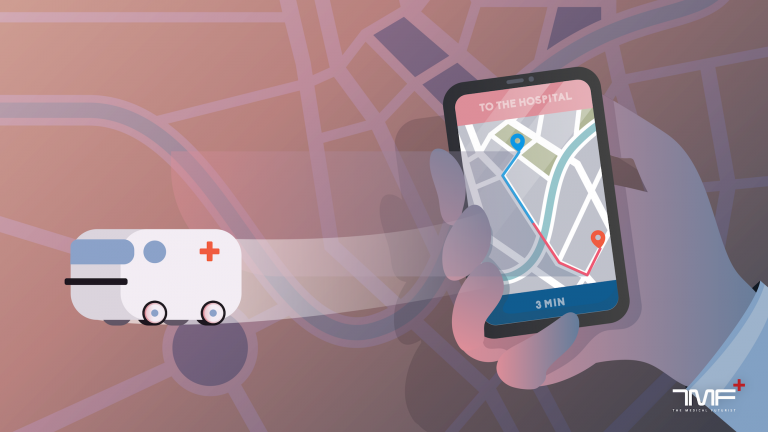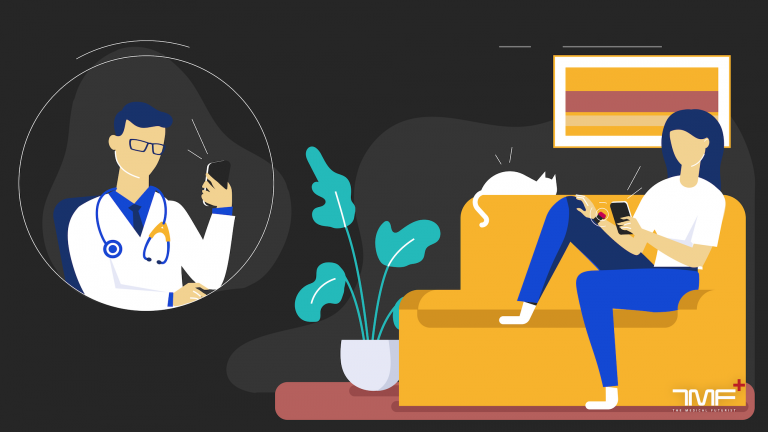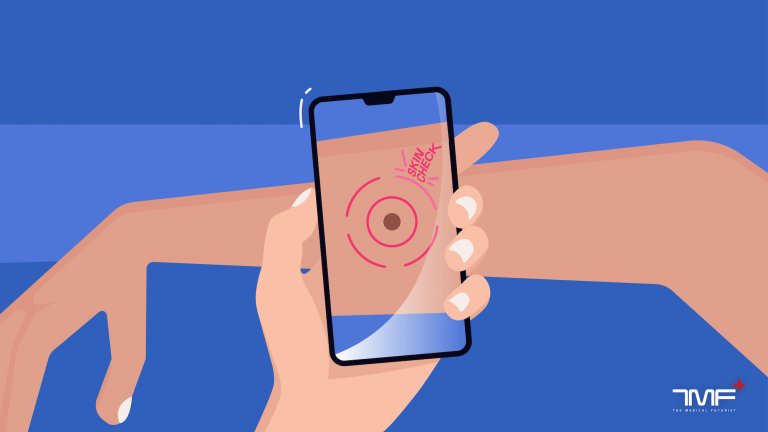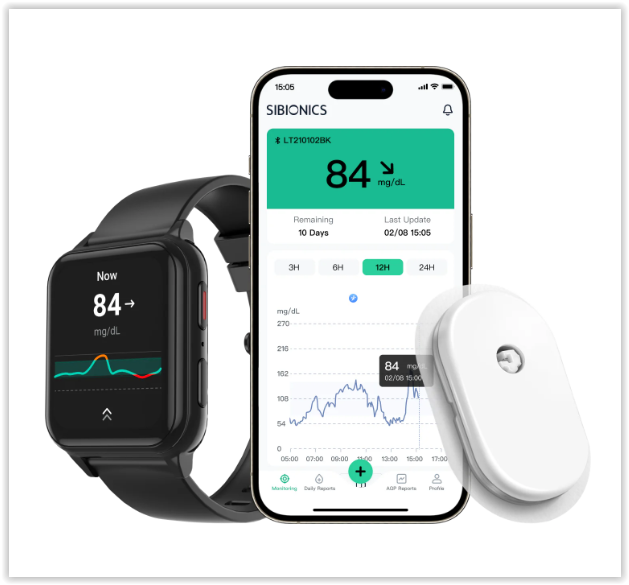In the realm of digital health, the pursuit of groundbreaking research topics is paramount. At The Medical Futurist Institute, we are frequently asked about the best research directions to explore. To address this common query, we have compiled a list of the top 10 research topics in digital health. Whether you are delving into this field for the first time or seeking new avenues to explore, these topics offer a comprehensive overview and valuable insights.
Criteria for Choosing Research Topics
Before delving into specific research topics, it is crucial to consider the following four criteria:
1. Find a Niche
Identifying a niche area within digital health can provide a unique perspective and offer opportunities for innovative research.
2. Aim for Uncharted Territories
Exploring uncharted territories in digital health can lead to groundbreaking discoveries and contribute to the advancement of the field.
3. Look for Ease of Entry
Choosing research topics that offer ease of entry can facilitate the initiation of research projects and ensure progress.
4. Seek Answers to Important Questions
Focusing on research topics that address important questions in digital health can have a significant impact on healthcare practices and patient outcomes.

Exploring Research Topics in Digital Health
1. Diabetes Management with Wearable Trackers Including CGMs
Diabetes affects millions worldwide, necessitating daily management to prevent serious complications. Advances in wearable technology, such as continuous glucose monitoring (CGM) devices, have the potential to improve the quality of life for individuals with diabetes.
2. The Impact of ECG Smartwatches on Hospital Admissions
ECG smartwatches have the potential to revolutionize heart monitoring and cardiovascular disease management. Understanding their preventive potential and impact on healthcare systems is essential for optimizing their use.
3. The Influence of Technology Giants on Healthcare Competition
Leading technology companies are increasingly involved in healthcare innovation. Exploring the transformative impact of companies like Amazon, Google, and Apple on the healthcare industry is crucial for understanding the evolving landscape of healthcare competition.

4. Challenges in Implementing AI-Based Medical Technologies
Despite the promise of artificial intelligence in healthcare, regulatory challenges and practical implementation hurdles persist. Addressing these challenges and exploring the practical benefits of AI-based technologies are vital for driving innovation in healthcare.
5. The Role of Empowered Patients in EMR Developments
Empowered patients play a significant role in shaping electronic medical record (EMR) systems. Investigating the impact of patient empowerment on EMR software development can offer valuable insights into patient-centered care.
6. Skin Checking Applications and Dermatological Practices
AI-powered skin checking applications have the potential to enhance dermatological practices and facilitate early detection of skin cancer. Understanding the impact of these applications on healthcare systems and patient outcomes is essential for improving skin cancer diagnosis and treatment.

7. Exploring Virtual Reality Therapies Beyond Pain Management
Virtual reality (VR) therapies have diverse applications in healthcare, ranging from rehabilitation to surgical preparation. Investigating the potential of VR therapies in various medical contexts can lead to innovative treatment approaches and improved patient outcomes.
8. 3D Printed Medications for Treatment Adherence
3D printing technology offers personalized medication options that can enhance treatment adherence. Examining patient responses to 3D printed medications and their impact on treatment outcomes can provide valuable insights into personalized healthcare.
9. Patient-Centric Design in Healthcare Facilities
Engaging patients in the design of healthcare facilities can improve the patient experience and treatment outcomes. Studying the impact of patient-centric design on patient-doctor relationships and healing processes can inform future healthcare facility designs.

10. Integration of Handheld Technologies in Doctor-Patient Relationships
Utilizing patient-generated health data from handheld devices and smartphone apps can improve healthcare delivery. Exploring the challenges and opportunities of integrating handheld technologies into doctor-patient relationships can enhance patient care and outcomes.
Should you have any questions or need guidance on pursuing research in digital health, feel free to reach out to The Medical Futurist Institute. We are dedicated to supporting researchers and innovators in the digital health landscape.
The post Top 10 Research Topics To Pursue In Digital Health appeared first on The Medical Futurist.
Frequently Asked Questions
What does holistic mean?
Holistic simply means holistic. Holistic means seeing the whole picture and not just parts of it. This can be hard because we are used seeing things as parts.
Most people think only in terms of white and black. There are many shades of grey.
It is important to consider all angles when working on a project. It is important to see it from all angles.
Try to understand how it fits together as a whole. How does each of its components interact with one another?
If you do find a problem, try to figure out why. Also, consider the impact of any changes that you make.
Who uses holistic medicines?
Holistic medicine refers to health care treating the whole person rather than treating specific symptoms. It considers both the mental, and physical aspects.
Holistic medicine is acupuncture as well massage therapy, chiropractic, nutritional counseling, Yoga, and other complementary therapies.
The majority of holistic medicine patients have had their conditions addressed.
Why is holistic medicine so much better?
Holistic health care focuses on treating the whole person rather than on individual symptoms. This involves looking at how someone feels about their body, their diet, where they live, and how much stress they have.
Holistic medicine is holistic and considers all aspects a patient's lives. It treats them all as one complete package. Although this sounds easy in theory, it's very difficult to do in practice. Many doctors only focus on the physical aspects of patients.
Can a holistic doctor prescribe medication?
Holistic medicine is based around the assumption that all diseases are caused and exacerbated by a combination many factors. These include diet, lifestyles, stress levels, emotional state, genetics, environmental problems, stress, stress, and other health-related concerns.
A well-rounded approach to treating patients includes considering these variables when prescribing medication.
A physician must be able to understand both modern science and traditional methods like herbs and homeopathy in order to understand the effects of each factor on a patient.
Many doctors are certified in alternative and complementary medicine (C&A). This allows them the ability to offer a wide variety of services to their clients.
Statistics
- According to a 2005 book by a US [116]Institute of Medicine panel, the number of RCTs focused on CAM has risen dramatically. (en.wikipedia.org)
- category.[111]Edzard Ernst characterized the evidence for many alternative techniques as weak, nonexistent, or negative and in 2011, published his estimate that about 7.4% were based on “sound evidence.” However, he believes that may be an overestimate. (en.wikipedia.org)
- The concept of regression toward the mean implies that an extreme result is more likely to be followed by a less extreme result. (en.wikipedia.org)
- The use of alternative medicine in the US has increased, with a 50 percent increase in expenditures and a 25 percent increase in the use of alternative therapies between 1990 and 1997 in America. (en.wikipedia.org)
- According to the World Health Organization, 80% of people use herbal medicine worldwide. (webmd.com)
External Links
nccih.nih.gov
doi.org
pubmed.ncbi.nlm.nih.gov
- PubMed: The Rise and Rise of Complementary and Alternative Medicine: A Sociological Perspective – PubMed
- PubMed – Holistic medicine
ncbi.nlm.nih.gov
- BIOFEEDBACK TRAINING & TENSION-TYPE HEADADACHE – PubMed
- The Effect of Foot Reflexology on Hospital Anxiety and Depression in Female Older Adults: a Randomized Controlled Trial – PubMed
How To
How to Get a Job in Holistic Medicine
The field, known as holistic medicine, is growing at an unparalleled rate. You can choose to pursue this career in many ways. Returning to school is the best way to go if you're looking to make a career out of this.
Many schools offer programs in holistic medicine. One of these schools is the National College for Complementary Medicines, which offers both undergraduate degrees and postgraduate programs. You can also find programs specifically tailored for medical professionals looking to enter the field.
Many online universities also offer holistic health classes. The Institute of Integrative Nutrition, (IIN), is one example of such an online program. This college provides students with many holistic health education tools.
Another option is to enroll in a traditional four-year college. Many colleges now offer courses in holistic health. The University of California even offers a Bachelor of Arts in Holistic Health Sciences.
A nutrition course is recommended if you intend to pursue a career involving holistic medicine. NCCM recommends that students take a course in nutrition before they begin any professional training. They say that “a good understanding of nutritional science is essential for anyone practicing integrative medicine.”
Holistic medicine is more holistic than traditional medicine because it focuses on the whole person and not just symptoms. It requires more skill and knowledge. Holistic medicine also requires understanding of how to evaluate different types and illnesses from a nutritional standpoint.
The NCCM reports that nutritionists often consult with doctors to provide nutritional advice to their patients. Some even go so far as to suggest specific diets or supplements based on their assessment of the patient's condition.
As a result, holistic practitioners must have a firm grasp of basic nutrition principles. This includes understanding what foods are healthy and which ones are not. It includes diagnosing nutritional deficiencies and other problems.
It is important that holistic practitioners are not all trained in nutrition. Some focus mainly on herbal treatments, while others concentrate solely on acupuncture. Still, others combine these two approaches into one treatment method.
Holistic practitioners, however, recommend eating a diet rich with fruits, vegetables, nuts and seeds. They also encourage the consumption of fish and seafood. They recommend avoiding fast food and processed foods. They recommend that people eat as much organic produce as possible.
The one thing holistic practitioners can agree on is the importance of a balanced diet in helping to prevent diseases. That said, there are some things about which they disagree. For example, they don’t believe gluten causes celiac. They think that the disorder can be triggered by a lack or nutrients.
They do agree, however, that certain foods can trigger allergic reactions. Anaphylaxis can also be caused by peanuts or shellfish. They also caution against excessive caffeine intake.
Many holistic practitioners are able to use herbs to treat many illnesses. They avoid the use of pharmaceutical drugs. These practitioners feel that these drugs mask the problem and do not solve it. As a result, they prefer to rely on natural remedies when possible.
Holistic practitioners offer a range of alternative therapies and often employ complementary methods. These include:
- Acupuncture-In Chinese medicine, acupuncture involves inserting needles strategically into the skin. This stimulates the body’s healing process.
- Herbal therapy – In addition to acupuncture, holistic practitioners commonly use herbs to treat various disorders. Ginseng, a popular herb for this purpose, is one of the most common.
- Homeopathy – Another type of traditional Chinese medicine, homeopathy, is based on the principle that like cures. You might experience a similar symptom when you are suffering from the same condition as someone else. In this case, you will need to search for a remedy which contains the same ingredients as the original substance.
- Massage therapy – Many holistic practitioners offer massage to promote relaxation and stress reduction. It is also claimed to improve blood circulation, increase energy levels, and reduce muscle tension.
When choosing a practitioner, you should ensure that he or she meets your needs. You should look for a nutritionist if you need someone who specializes in nutritional counseling. Likewise, if you want to learn more about acupuncture, find a practitioner certified by the American Association of Oriental Medicine (AAOM).
Ask your doctor any questions you may have about holistic care. Check with your insurance provider to see if you are eligible for certain services.
–
——————————————————————————————————————————————
This blog is a source of general information and discussion on health and related topics. Information and materials on this blog, on the website, or in any of the connected materials are not intended to replace or used as a substitute for the advice of a medical professional, diagnosis, or treatment. This blog does not represent the application of any nursing, medical or other health professional advice or diagnosis. We are unable to diagnose health conditions, offer second opinions or provide specific treatment recommendations via this blog or on our website.
If you or another person is suffering from a medical issue and you are concerned, consult your doctor or seek out other medical professional treatment as soon as possible. Do not disregard medical advice from a professional or delay seeking it due to information you seen on the blog or website or in any of the linked materials. If you're experiencing an emergency medical situation, dial 911 or seek emergency medical assistance on the closest phone immediately.
——————————————————————————————————————————————
By: berci.mesko
Title: Exploring Top Research Topics in Digital Health
Sourced From: medicalfuturist.com/top-10-research-topics-to-pursue-in-digital-health
Published Date: Mon, 25 Nov 2024 13:46:22 +0000
Frequently Asked Questions
What does holistic mean?
Holistic simply means holistic. Holistic means seeing the whole picture and not just parts of it. This can be hard because we are used seeing things as parts.
Most people think only in terms of white and black. There are many shades of grey.
It is important to consider all angles when working on a project. It is important to see it from all angles.
Try to understand how it fits together as a whole. How does each of its components interact with one another?
If you do find a problem, try to figure out why. Also, consider the impact of any changes that you make.
Who uses holistic medicines?
Holistic medicine refers to health care treating the whole person rather than treating specific symptoms. It considers both the mental, and physical aspects.
Holistic medicine is acupuncture as well massage therapy, chiropractic, nutritional counseling, Yoga, and other complementary therapies.
The majority of holistic medicine patients have had their conditions addressed.
Why is holistic medicine so much better?
Holistic health care focuses on treating the whole person rather than on individual symptoms. This involves looking at how someone feels about their body, their diet, where they live, and how much stress they have.
Holistic medicine is holistic and considers all aspects a patient's lives. It treats them all as one complete package. Although this sounds easy in theory, it's very difficult to do in practice. Many doctors only focus on the physical aspects of patients.
Can a holistic doctor prescribe medication?
Holistic medicine is based around the assumption that all diseases are caused and exacerbated by a combination many factors. These include diet, lifestyles, stress levels, emotional state, genetics, environmental problems, stress, stress, and other health-related concerns.
A well-rounded approach to treating patients includes considering these variables when prescribing medication.
A physician must be able to understand both modern science and traditional methods like herbs and homeopathy in order to understand the effects of each factor on a patient.
Many doctors are certified in alternative and complementary medicine (C&A). This allows them the ability to offer a wide variety of services to their clients.
Statistics
- According to a 2005 book by a US [116]Institute of Medicine panel, the number of RCTs focused on CAM has risen dramatically. (en.wikipedia.org)
- category.[111]Edzard Ernst characterized the evidence for many alternative techniques as weak, nonexistent, or negative and in 2011, published his estimate that about 7.4% were based on “sound evidence.” However, he believes that may be an overestimate. (en.wikipedia.org)
- The concept of regression toward the mean implies that an extreme result is more likely to be followed by a less extreme result. (en.wikipedia.org)
- The use of alternative medicine in the US has increased, with a 50 percent increase in expenditures and a 25 percent increase in the use of alternative therapies between 1990 and 1997 in America. (en.wikipedia.org)
- According to the World Health Organization, 80% of people use herbal medicine worldwide. (webmd.com)
External Links
nccih.nih.gov
doi.org
pubmed.ncbi.nlm.nih.gov
- PubMed: The Rise and Rise of Complementary and Alternative Medicine: A Sociological Perspective – PubMed
- PubMed – Holistic medicine
ncbi.nlm.nih.gov
- BIOFEEDBACK TRAINING & TENSION-TYPE HEADADACHE – PubMed
- The Effect of Foot Reflexology on Hospital Anxiety and Depression in Female Older Adults: a Randomized Controlled Trial – PubMed
How To
How to Get a Job in Holistic Medicine
The field, known as holistic medicine, is growing at an unparalleled rate. You can choose to pursue this career in many ways. Returning to school is the best way to go if you're looking to make a career out of this.
Many schools offer programs in holistic medicine. One of these schools is the National College for Complementary Medicines, which offers both undergraduate degrees and postgraduate programs. You can also find programs specifically tailored for medical professionals looking to enter the field.
Many online universities also offer holistic health classes. The Institute of Integrative Nutrition, (IIN), is one example of such an online program. This college provides students with many holistic health education tools.
Another option is to enroll in a traditional four-year college. Many colleges now offer courses in holistic health. The University of California even offers a Bachelor of Arts in Holistic Health Sciences.
A nutrition course is recommended if you intend to pursue a career involving holistic medicine. NCCM recommends that students take a course in nutrition before they begin any professional training. They say that “a good understanding of nutritional science is essential for anyone practicing integrative medicine.”
Holistic medicine is more holistic than traditional medicine because it focuses on the whole person and not just symptoms. It requires more skill and knowledge. Holistic medicine also requires understanding of how to evaluate different types and illnesses from a nutritional standpoint.
The NCCM reports that nutritionists often consult with doctors to provide nutritional advice to their patients. Some even go so far as to suggest specific diets or supplements based on their assessment of the patient's condition.
As a result, holistic practitioners must have a firm grasp of basic nutrition principles. This includes understanding what foods are healthy and which ones are not. It includes diagnosing nutritional deficiencies and other problems.
It is important that holistic practitioners are not all trained in nutrition. Some focus mainly on herbal treatments, while others concentrate solely on acupuncture. Still, others combine these two approaches into one treatment method.
Holistic practitioners, however, recommend eating a diet rich with fruits, vegetables, nuts and seeds. They also encourage the consumption of fish and seafood. They recommend avoiding fast food and processed foods. They recommend that people eat as much organic produce as possible.
The one thing holistic practitioners can agree on is the importance of a balanced diet in helping to prevent diseases. That said, there are some things about which they disagree. For example, they don’t believe gluten causes celiac. They think that the disorder can be triggered by a lack or nutrients.
They do agree, however, that certain foods can trigger allergic reactions. Anaphylaxis can also be caused by peanuts or shellfish. They also caution against excessive caffeine intake.
Many holistic practitioners are able to use herbs to treat many illnesses. They avoid the use of pharmaceutical drugs. These practitioners feel that these drugs mask the problem and do not solve it. As a result, they prefer to rely on natural remedies when possible.
Holistic practitioners offer a range of alternative therapies and often employ complementary methods. These include:
- Acupuncture-In Chinese medicine, acupuncture involves inserting needles strategically into the skin. This stimulates the body’s healing process.
- Herbal therapy – In addition to acupuncture, holistic practitioners commonly use herbs to treat various disorders. Ginseng, a popular herb for this purpose, is one of the most common.
- Homeopathy – Another type of traditional Chinese medicine, homeopathy, is based on the principle that like cures. You might experience a similar symptom when you are suffering from the same condition as someone else. In this case, you will need to search for a remedy which contains the same ingredients as the original substance.
- Massage therapy – Many holistic practitioners offer massage to promote relaxation and stress reduction. It is also claimed to improve blood circulation, increase energy levels, and reduce muscle tension.
When choosing a practitioner, you should ensure that he or she meets your needs. You should look for a nutritionist if you need someone who specializes in nutritional counseling. Likewise, if you want to learn more about acupuncture, find a practitioner certified by the American Association of Oriental Medicine (AAOM).
Ask your doctor any questions you may have about holistic care. Check with your insurance provider to see if you are eligible for certain services.

